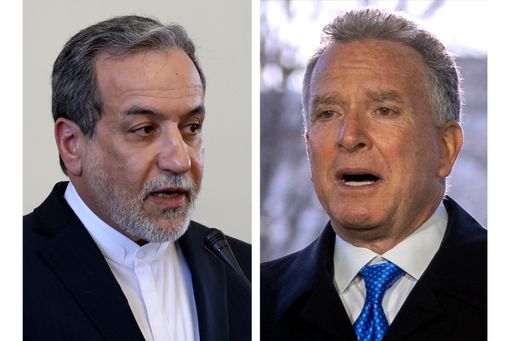Iran and the United States wrapped up nuclear talks in Oman with no apparent breakthrough in a public standoff over-enrichment, but with both sides confirming plans for future negotiations.
This was the fourth round of talks that began nearly a month ago, marking the highest-level contact between the two foes since Washington withdrew in 2018 from a landmark nuclear deal, during President Donald Trump's first term.
Both sides had reported progress in the previous three rounds, and on Sunday Iran said the meeting was "difficult but useful" while a senior US official said Washington was "encouraged".
In a post on X, Iran's foreign ministry spokesman Esmaeil Baqaei said the talks could help "better understand each other's positions and to find reasonable and realistic ways to address the differences".
Baqaei earlier said negotiators would push for relief from US sanctions.
‘Non-negotiable’
The US official, speaking on condition of anonymity, said Washington was "encouraged by today's outcome and looks forward to our next meeting, which will happen in the near future", without specifying when.
Baqaei said that the "next round will be coordinated and announced by Oman", which in turn said, "the talks will take place once both parties... consult their leaderships".
According to the US official, the talks on Sunday were "both direct and indirect, and lasted over three hours".
"Agreement was reached to move forward" and "continue working through technical elements", the official added.
Iran entered the talks saying that its right to maintain uranium enrichment was "non-negotiable", while Washington's chief negotiator Steve Witkoff has called it a "red line".
Following the talks, Foreign Minister Abbas Araghchi, who led Tehran's delegation, reiterated Iran's stance on enrichment, saying it "must continue and there is no room for compromise on it".
He noted the latest meeting was "more serious" than previous rounds, telling Iranian state TV that Tehran may be open to limit the rate of enrichment "to help build trust".

Officials say Tehran is willing to negotiate curbs on its nuclear work in order to have sanctions lifted.
'I'm optimistic'
The talks come amid a flurry of diplomatic activity in the region, with US President Trump heading to the Gulf for his first major foreign tour next week, and Araghchi just back from Saudi Arabia and Qatar.
Omani Foreign Minister Badr Albusaidi said the talks on Sunday "included useful and original ideas reflecting a shared wish to reach an honourable agreement".
Yousuf Al Bulushi, chairman of the Muscat Policy Council think tank, said that a breakthrough "will take quite some time, but I'm optimistic".
Iran currently enriches uranium to 60 percent purity –– far above the 3.67-percent limit set in the 2015 deal with Washington and other world powers, but below the 90 percent needed for weapons-grade material.
Witkoff, Trump's Middle East envoy, said in a Friday interview that Iran's "enrichment facilities have to be dismantled".
"That's our red line. No enrichment," he told US right-wing outlet Breitbart News, after initially suggesting flexibility on Tehran maintaining low-level enrichment of uranium for civilian purposes.
Araghchi has repeatedly defended Iran's right to enrich uranium.

"In its indirect talks with the United States, Iran emphasises its right to peaceful use of nuclear energy and clearly declares that it is not seeking nuclear weapons," Araghchi says.















